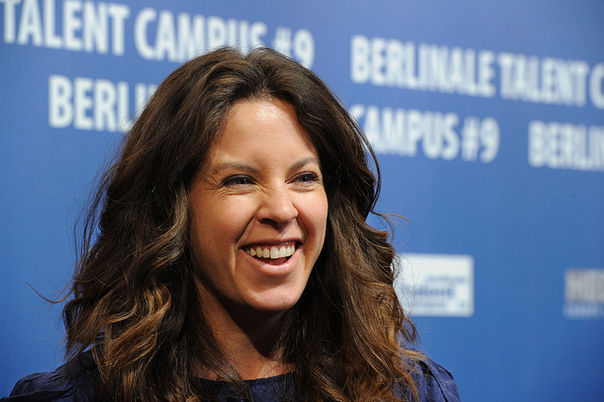Of Time, Space and Belonging
2009 Golden Bear-winning director Claudia Llosa talks about relating to her audience, cultural differences and controversial subjects.

Claudia Llosa
She’s a young, charming and highly skilled filmmaker. She’s worked her way through many financial and artistic difficulties and won the Golden Bear in 2009. All these make Peruvian director Claudia Llosa an ideal expert to share her experiences at the Berlinale Talent Campus. I caught up with her for a quick yet enlightening interview.
In most South American films, especially those from Brazil, the pace is very fast, reflecting the hectic nature of daily life. But your films have a leisurely pace. The rhythm is almost meditative.
I don’t want the viewer to get just a glimpse of what they see, but to take their time and understand what’s going on. The frame itself contains enough information for the viewer and I want them to go to different places within the frame to see different layers of the film. An example is the opening scene of MILK OF SORROW (LA TETA ASUSTADA), where the desert goes on and on. I need to make sure I don’t lose the audience by losing time, but I consciously tell them I don’t want them to rush. Also, in our culture, in the country, time is different than in European modernity. It’s circular, not linear. Time and space are personal conceptions and I want to involve this feeling. You never know what time it is, but it completes a cycle and repeats itself. I’m trying to go with that rhythm, that of nature.
Both of your films are set in places with very specific identities where people have strong religious leanings. Does that relate to your personal experience, how you grew up?
I‘m a girl of the city. I was born in Lima and because of my father, we travelled a lot. So I’ve been to many places but always as a visitor. When I was a child, I always had the feeling that I belonged to a place that I didn’t belong to. I’m Peruvian, I live in a big city and speak Spanish. It’s probably a multicultural society but it’s actually fragmented, without communication. That’s something that really touches me. From the very beginning, I consciously wanted to relate to this important problem we, as a country, have to deal with.
Even though the plots of your films are disturbing and controversial, you approach them in a very restrained, mature manner.
I believe everybody is entitled to say whatever they want. When I finish a film, that film doesn’t belong to me. I have to respect the opinions and because I respect the opinions, I have to analyse them. Art has richness of interpretation and it’s that richness that brings me responsibility. These subjects are so difficult and complex, they’re like prisms. When you look from one side and then from another, it’s different. Rationally I accept everything, but emotionally it’s difficult, of course. But as a filmmaker, I have to leave that at home.


301 Moved Permanently